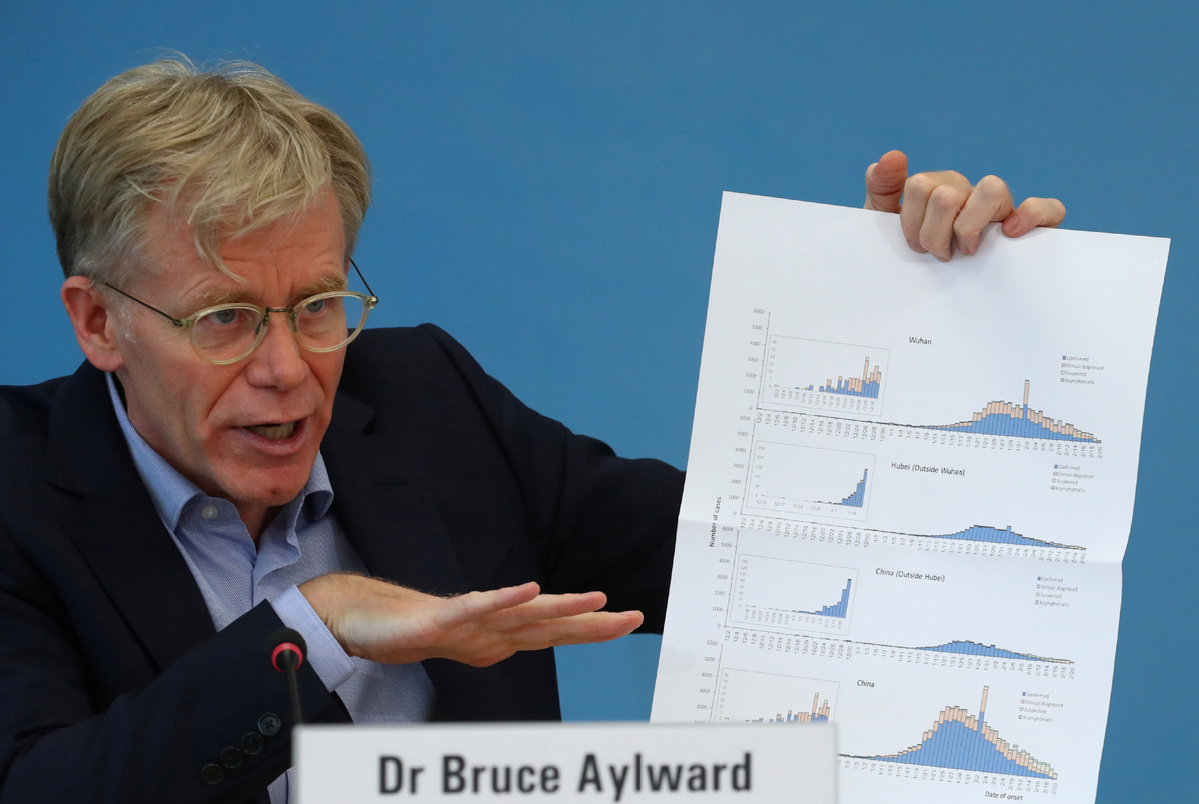World not ready for pandemics


Much work needed to boost health strategies during current outbreak and after, expert says
The international community has been jarred into action to contain the spread of novel coronavirus, continuing on from what the World Health Organization labeled an "unprecedented response" by China in dealing with the epidemic.
Australian scientists recreated the virus in the lab, just days after receiving a sample. French health authorities developed a rapid diagnosis test, leading to the first confirmed diagnosis in Europe. Teams of scientists in China, the United Kingdom and United States have generated candidate vaccines in record time.
Despite these and other ongoing efforts, governments and health organizations will be aware of a sobering truth: much of the critical work to mitigate epidemics must occur before an outbreak begins.
"When the pandemic is actually hitting, it's extremely difficult to make all the right decisions," Richard Coker, emeritus professor at the London School of Hygiene & Tropical Medicine, said. "That's why preparedness and planning is so important."
The world has been and remains underprepared for major pandemics, Coker says, and significant work must be done to improve health strategies, during this current outbreak-and after.
Nita Madhav, chief executive of US-based pandemic risk analysts Metabiota, says that when the world is between major outbreaks, pandemic preparedness is often demoted on health policy agendas.
"You need to give these types of events the attention they need even when we're not in crisis mode," Madhav said.
In October, the London-based Economist Intelligence Unit and other agencies released the Global Health Security Index, which assessed health security across 195 countries.
The average index score across all nations was 40.2 out of 100. The average score among high income countries was 51, while 116 high-and middle-income countries did not score above 50.
"National health security is fundamentally weak around the world," the report stated.
Severely underfunded
National pandemic preparedness programs around the world are severely underfunded, according to the World Bank, whose former president Jim Yong Kim popularized the term "panic and neglect" to describe shortcomings in pandemic preparedness.
This month, Tedros Adhanom Ghebreyesus, director-general of the WHO, condemned the harmful cycle that the international community finds itself in during and between outbreaks.
"We throw money at an outbreak, and when it's over, we forget about it and do nothing to prevent the next one," he said at the recent Munich Security Conference in Germany.
Climate change, urbanization and travel have raised the likelihood of epidemic outbreaks.
The WHO has made six Public Health Emergency of International Concern declarations over the last decade, two of which are currently active for novel coronavirus and an ongoing Ebola outbreak in central Africa that has killed more than 2,200 people.
Following the 2014-16 Ebola epidemic, which cost West African nations an estimated $53 billion, the World Bank set up the Pandemic Emergency Financing Facility which offers insurance to over 70 of the world's poorest nations.
The Independent Commission on Multilateralism says that WHO is also underfunded, as member states slashed their dues by 20 percent between 2010 and 2015.
"WHO remains the right organization to make international policies and coordinate action on global public health," the ICM said. "However, its operational capacity has been hindered by inadequate funding."
The WHO says it needs to raise an additional $675 million in order to ensure an adequate response to novel coronavirus over the next three months.
When funds and resources are available, evaluating where they should be allocated also remains a challenge, according to Ben Oppenheimer, senior scientist at Metabiota. He says it is crucial that countries are forthcoming with health data in order to build a global picture of preparedness.
Addressing weak spots
Metabiota has headed the development of an Epidemic Preparedness Index, which collates public health information from 188 countries. Tools such as these will help health organizations and governments identify and address weak spots in global pandemic preparedness, according to Oppenheimer.
"This will not be the last outbreak of this kind," he said. "The challenge is to harness public attention from this event in a productive way, and to ensure that we don't leave the investments that need to be made until the next event hits."
The WHO warned on Monday against using the term "pandemic" to describe the current outbreak.
Michael Ryan, executive director of the WHO's Health Emergencies Program, echoed the view.
"But in declaring something a pandemic, it is too early. We are still trying to avoid that reality, we are still trying to avoid that eventuality," Ryan said.
































